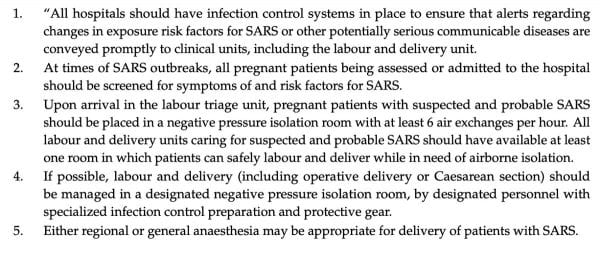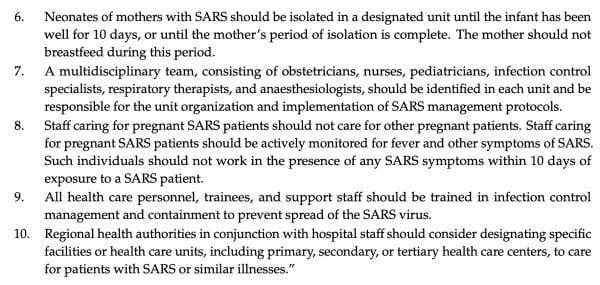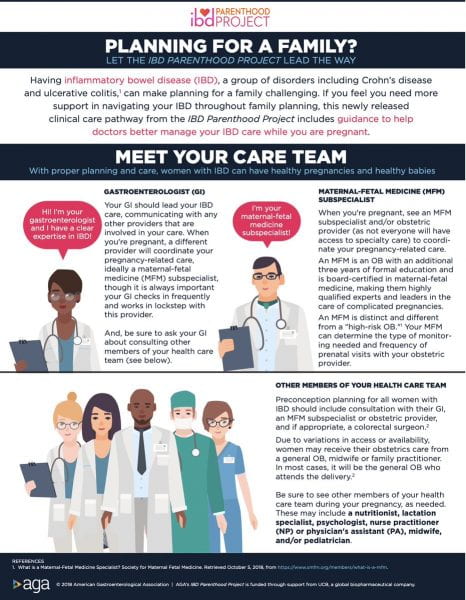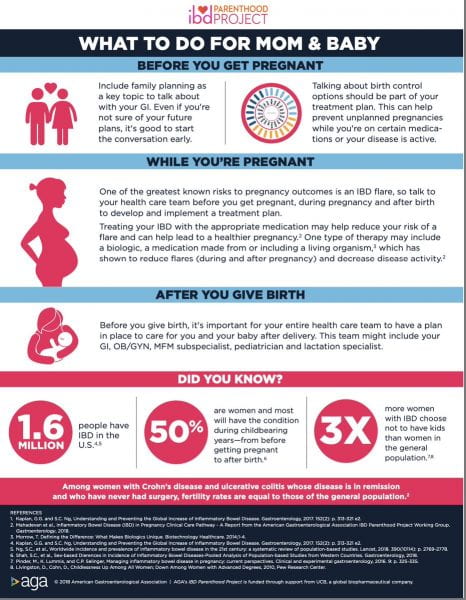By David T. Rubin, MD, Professor of Medicine, University of Chicago Medicine
Dear Colleagues,
A lot of concern has recently come up regarding pregnancy in the setting of the SARS-CoV-2 pandemic.
Here are some key points I found on this issue:
Pregnancy is a state of altered immunity, thought in part to be how the body doesn’t “reject” the fetus. Pregnant women have a higher risk of viral infections. Prior experience with other viruses finds that pregnant women may have a greater risk of severe pneumonia.
- We still don’t know a lot about SARS-CoV-2 and pregnancy. Two reports from China each of 9 women with COVID-19 in 2nd-3rd trimester who then delivered healthy babies. No babies had the infection and the moms had symptoms similar to non-pregnant COVID-19 people.1,2
- In order to know more about SARS-CoV-2, we need to look at other coronavirus outbreaks.
- During both SARS-CoV (2003) and MERS-CoV (2012), there was no evidence of vertical spread from the mother to the baby.
- Complications in the mother included severe pneumonia and hospitalization, and in some cases, deaths.
- Complications to fetuses when mom was infected with SARS or MERS included intrauterine growth retardation, preterm delivery, and miscarriage.
- What we can do to prevent SARS-CoV-2 and COVID-19 in pregnant women:
- *Strict* social distancing for pregnant moms
- Masks if they need to go outside
- Hand washing
- Making sure OB has prevention protocols (see below) to which staff members are strictly adhering.3
4. For pregnancy in IBD and COVID-19:
-
- There are so far no reports of SARS-CoV-2 in pregnant women with IBD.
- The general approach is to focus on keeping the mother healthy, which means making sure her IBD is in remission. Ultimately, having a healthy mom = having a healthy baby.
- Being in remission at time of conception increases likelihood of staying in remission.
- Almost ALL IBD therapies are safe in pregnancy and should be continued (exceptions to his are methotrexate and tofacitinib).
- Finally, good coordination and communication between the GI and OB teams will definitely help!
This is a great resource from American Gastroenterological Association about pregnancy in IBD, check it out for all the questions I didn’t answer!4
I hope this is helpful. Please share your thoughts and ideas with me.
Thank you all, stay safe.
David
David T. Rubin, MD
Professor of Medicine, University of Chicago Medicine
References and great resources for further reading:
- Chen H, Guo J, Wang C, et al. Clinical characteristics and intrauterine vertical transmission potential of COVID-19 infection in nine pregnant women: a retrospective review of medical records. The Lancet. 2020;395(10226):809-815. doi:10.1016/S0140-6736(20)30360-3.
- Lei D, Wang C, Li C, Fang C, Yang W, Cheng B, Wei M, Xu X, Yang H, Wang S, Fan C. Clinical characteristics of pregnancy with the 2019 novel coronavirus disease (COVID-19) infection. Chin J Perinat Med. 2020;23(3).
- Schwartz DA., and Graham AL. “Potential Maternal and Infant Outcomes from Coronavirus 2019-NCoV (SARS-CoV-2) Infecting Pregnant Women: Lessons from SARS, MERS, and Other Human Coronavirus Infections.” Viruses. 2020;12(2):194. doi:10.3390/v12020194
- “IBD Parenthood Project | Official Site.” Accessed March 25, 2020. https://ibdparenthoodproject.gastro.org/




